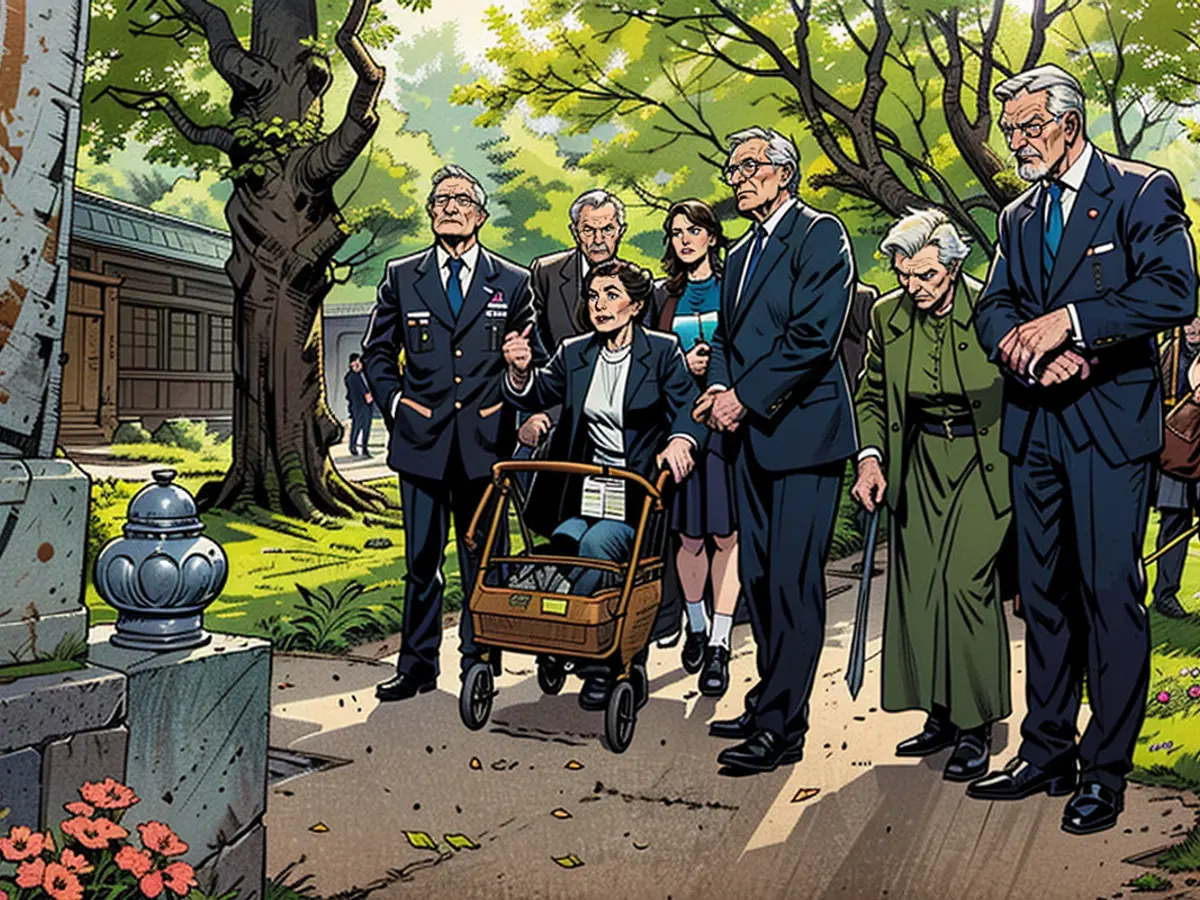Steinmeier asks for forgiveness for Nazi atrocities
80 years ago, Warsaw's citizens made a desperate attempt to drive out the Nazi occupiers. The Nazis brutally suppressed the uprising. President Steinmeier praises the Poles' courage and asks for forgiveness for Germany's wartime atrocities.
President Frank-Walter Steinmeier met with elderly former participants of the desperate resistance against German occupation in 1944 during his visit to the Polish capital to commemorate the Warsaw Uprising 80 years ago. He asked for forgiveness for German atrocities in Poland during World War II, saying, "We Germans must not forget."
Steinmeier delivered his central message at the main commemoration event with Polish President Andrzej Duda and hundreds of attendees. "I want to say just one sentence, but it comes from the heart: I ask for forgiveness, especially here and now," he said.
Duda called the uprising, despite its failure, "the moral foundation of Polish independence." On August 1, 1944, the Polish Home Army rose up against German occupation, aiming to expel the Germans and regain control of the capital before the Soviet army arrived. However, the Wehrmacht and SS brutally suppressed the uprising in 63 days, committing mass atrocities against the civilian population, one of the worst German war crimes. Around 200,000 people were killed, most of them civilians. Warsaw was largely destroyed in retaliation.
"The Warsaw Uprising is one of the most brutal chapters in the long history shared by the Polish and German peoples," Steinmeier said. "And it is one of the most heroic chapters in Polish history." He stressed that Germany must not forget the destructive intent of its occupation against the neighboring people.
Steinmeier also expressed gratitude for the good neighborly relations between Germans and Poles today. Both countries should work together for a European future and support Ukraine, which is under attack from Russia. He briefly addressed Polish demands for reparations for the destruction and loss of life during World War II, stating that much has been achieved for the last surviving victims of the occupation, and that governments are in close contact. He also mentioned the planned German-Polish House of Remembrance in Berlin.
Previous national-conservative governments in Warsaw had made billion-dollar demands against Germany. The new center-left government under Prime Minister Donald Tusk is more restrained, but the issue remains present in Polish society and was discussed during the German-Polish government consultations in Warsaw in early July. The German government considers the question of reparations legally settled but is looking for ways to cooperate more closely with Poland.
President Steinmeier is accompanied by Minister of State for Culture Claudia Roth during his visit to Warsaw. He is scheduled to meet with his Polish counterpart, President Duda, on Thursday.
During his visit to Warsaw, President Steinmeier expressed gratitude for the German-Polish relationships that have improved since the Warsaw Uprising 80 years ago. He met with elderly survivors of the uprising and asked for forgiveness for Germany's atrocities committed during World War II in Warsaw.








